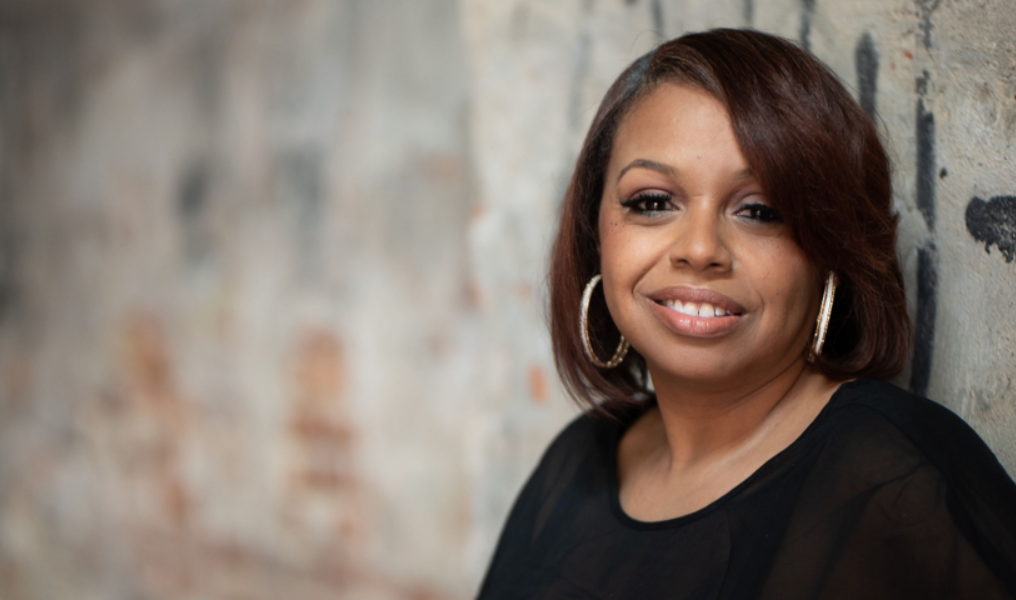On a national scale, The Centers for Disease Control and Prevention have reported that new HIV diagnoses have remained relatively stable in recent years — as of 2017, new diagnoses hovered roughly around 39,000. Despite that stability, however, people of color, in particular black, Hispanic and Latino men who have sex with men, are disproportionately affected by the virus; of all the women in the U.S. who have HIV, 72 percent are black. The Black AIDS Institute is one organization working to stop those trends of infection, in particular in communities of color. Though the national group is Los Angeles-based, this year they've introduced a volunteer-centered national Women's Ambassador Program dedicated to taking the virus head-on across the nation and reducing its spread. For Detroit, Famika Edmond answered the call.
"The Black Women's Ambassador program is dedicated to amplifying the voices and the leadership of black women around the country and having conversations about HIV treatment and prevention," she said. "This cohort of women comes from around the country including Puerto Rico and includes women who are living with HIV and who are HIV-negative, women of the trans experience and cisgender women. These women will be leading both [in-person] educational outreach and through social media in their communities while they receive support from the Black AIDS Institute to support their work."
Edmond, who is a community outreach specialist at the Detroit Health Department when not volunteering, said that she was drawn to BAI's ambassador project because of its inclusion and overarching goals. This role will officially last a year during which time she'll be responsible for curating a social media account dedicated to providing HIV/AIDS awareness, leading community conversations about the virus, linking community members to resources and more. She said her first community-driven event will kick off in April.
"The first thing I'm going to be doing is a table for the National HIV/AIDS Youth Awareness Day," Edmond said. "So I will be putting on a table that day [April 10. And that's] where I'll be putting my literature out from BAI. And then in the month of May, I'm actually going to be doing a pamper and prep party. So people come, get prettied up and I'm going to be able to have the opportunity to give them the education while they're there."
Even before she joined with BAI, Edmond said that she spent part of 2018 educating people on HIV/AIDS advocacy and on advocating for one's own health when visiting health providers. She said that she took an interest in that more when she had her own health HIV/AIDS health scare.
"A couple of years ago when I was in my late 20s I had a scare myself. My husband was very free loving and was having outside relationships outside of our marriage and I had to get tested. It was the worst two weeks I ever had before I found out that everything came back OK," she said. "After that, it made me more aware of why we have to be aware of who we're having sex with, what their status is, what our status is. And then, I also had a few family members that were also positive. We had to bury one and one is still with us right now, so it has impacted me as a caregiver and in my [personal] situation."
She now advises anyone who suspects they may have HIV/AIDS or other STD or STI, particularly those in the LGBTQ community like herself, to be firm with their health care providers in accessing the resources.
"I had just had an experience recently myself," she said. "I do date women and my doctor is aware of that and she felt like because I have dated women and have had a hysterectomy that she didn't have to give me a pap smear or any kind of HIV or STD testing, even though I was requesting it. And it baffled me because if you're using your vagina or your penis, you should be getting checked. I felt like a lot of times, especially with lesbian women, they figure in a same-sex relationship you're opting out of certain services. And people have to know that they still should be getting tested and checked out. They may be taken aback and made to feel like they aren't meant to have these questions."
In addition to her existing knowledge about HIV and AIDS, Edmond underwent a five-day training session in New Orleans Sponsored by BAI to emphasize not only goals for 2019 but to get to know other women around the country in similar situations to her own. She said that though she doesn't have HIV herself it has impacted her life, and meeting people from the program has given her perspective on fighting it and increased her excitement about her new role.
"[I'm excited about] being able to get information, awareness out there to black women. Because with me doing the type of work I do, that, unfortunately, is a demographic we can't hit because they're not considered an at-risk population," she said. "So being able to have that platform not just being able to talk about medical intervention but also about sexual health and reproductive justice, all of those topics, trying to lump that all in together."
Follow Edmond on social media to learn more about specific events she's hosting and to get HIV/AIDS resources. To find out more about Edmond and the women in her cohort go online to blavkaids.org/amassador-program-for-black-women/.
Famika Edmond Named Black AIDS Institute Detroit Ambassador










